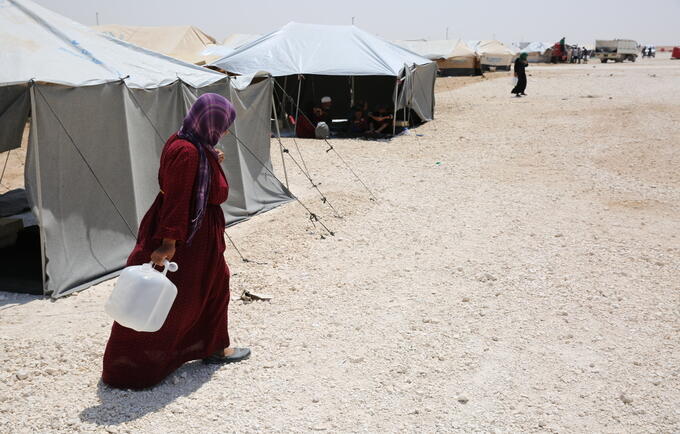For 15 years, Um Abdullah lived a life of daily abuse at the hands of her husband, choosing to bear it in silence for the sake of her child. The day finally came when she decided to break free.
“I feel human again. All I needed was someone to help me get my life back,” Um Abdullah explained to a psychosocial support specialist working at a clinic in rural Damascus supported by UNFPA, the United Nation’s sexual and reproductive health agency.
Women and girls’ vulnerability to gender-based violence is often highly exacerbated in humanitarian emergencies. More than 70% of women have experienced gender-based violence in some crisis settings as opposed to a global rate of 35%. Most survivors report violence from people closest to them: family members and intimate partners. Gender-based violence is a life-threatening human rights violation. In 2012, nearly half of all women victims of homicide around the world were murdered by their family members or intimate partners. The majority of survivors suffer in silence and do not request help.
“I tried to put up with the suffering and the humiliation for as long as I could. I thought I was doing the right thing for myself and my child, but it became clear that things were going from bad to worse,” Um Abdullah said.
When a friend mentioned a nearby clinic supported by UNFPA and advised her to go, Um Abdullah found the courage to take the step she had avoided for years. She carefully planned her escape, waiting for an ideal opportunity to leave with her son unnoticed.
“Even after making the decision to go, I was plagued with fear and doubt. After fifteen long years, even a change for the better can feel overwhelming. As soon as my health checks were done, I felt more at ease, and I asked to see a legal consultant to inquire about divorce proceedings,” Um Abdullah recounted.
The consultant walked Um Abdullah through the legalities of divorce in her case, outlining her options and offering advice on how she can address the challenges she may face throughout the process. Since then, she has managed to finalize her divorce and regained control over her life.
She has also become a frequent participant in the center’s empowerment and awareness sessions, during which she often shares her story with other women facing similar predicaments.
Through its 124 Women and Girls Safe Spaces, 143 primary healthcare facilities, and 38 youth centers, UNFPA continues to provide essential reproductive health and gender-based violence services to women, girls, men and boys impacted by the Syria crisis.
“Hard times don’t last forever. They must come to an end eventually,” she said.
More about UNFPA's response to the Syria crisis can be found at our most recent situation report.


